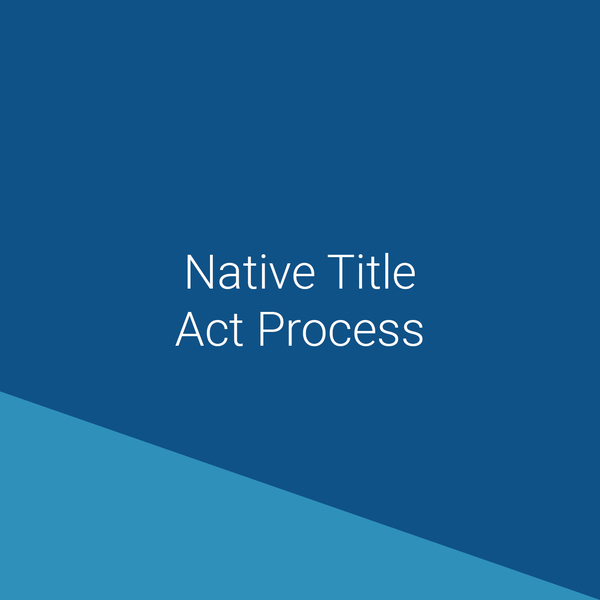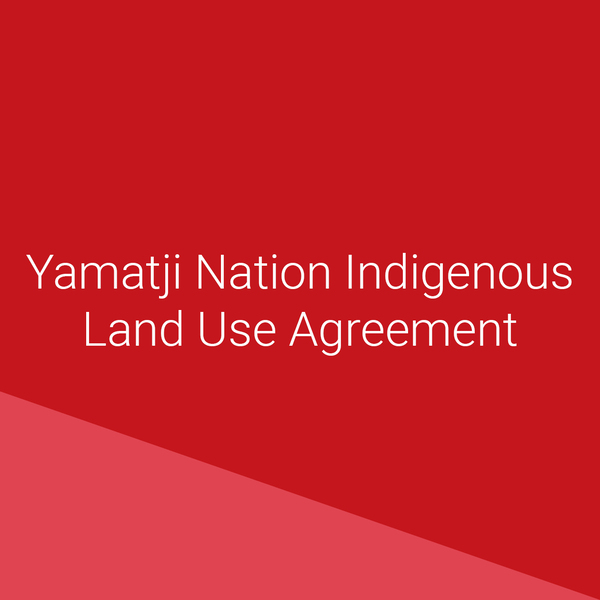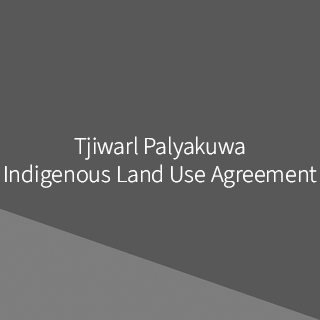Native Title is not something granted by governments. Native Title is the set of rights and interests over land and waters that have been established through traditional Aboriginal law and custom. It can be recognised under Australian law balanced with other rights and interests in the area in question.
Native Title rights and interests may include rights to:
- decide who can access land
- access an area for traditional purposes, like camping or ceremonies
- visit and protect important places and sites
- hunt, fish and gather food or traditional resources like water, wood and ochre
- teach law and custom on country.
Australian law recognises that Native Title exists where Aboriginal people have maintained a traditional connection to their land and waters, since sovereignty and where acts of government have not extinguished it.
Types of Native Title
‘Exclusive’ Native Title affords the holders the right to possess and occupy an area to the exclusion of all others, including the right to control access to and use of that area.
‘Non- exclusive’ Native Title does not give a right to control access and use of the area and ‘future acts’ affecting both types are subject to procedures required by the Native Title Act 1993 (Cth) (NTA).
The department works with government departments and authorities, conservation bodies, the community and mineral industries, in order to achieve a balance between the needs of all.
Given the sensitive and involved nature of resource access issues, it is strongly suggested that assistance and further information is sought from the department’s staff (refer to the Contact Us page).
Responsibilities and activities
The department facilitates access in accordance with relevant legislation and government policy concerning Native Title, Aboriginal heritage and land access planning for exploration, mining, and development of the Western Australia’s mineral resources on all land areas of the State and adjoining coastal waters.
The NTA allows Aboriginal people to lodge claims for Native Title that go through a registration process with the National Native Title Tribunal. While those claims are negotiated by respective parties and are eventually determined by the Federal Court, the NTA provides governments with a process to continue its business such as land management and grants of land and mineral tenure. These grants are classified as ‘future acts’ under the NTA and if they proceed without following the prescribed NTA processes they may be invalid so far as they affect Native Title. See Native Title Act process section).
Refer to the current departmental native title project officer areas of responsibility.
Environmental policy and land-use planning
The department has three Liaison Officers to assist mineral and petroleum companies with inquiries regarding Native Title and access to:
- Aboriginal reserves
- Aboriginal freehold and special lease
- determined Native Title areas
- Aboriginal owned pastoral leases
- pastoral leases
- land containing Aboriginal sites
- environmentally sensitive areas
The Liaison Officers can also provide information and advice about a broad range of legislative requirements contained within the:
- Mining Act 1978 (WA)
- Petroleum and Geothermal Energy Resources Act 1967 (WA)
- Aboriginal Heritage Act 1972 (WA)
- Native Title Act 1993 (Cth)
- Aboriginal Communities Act 1979 (WA)
- Aboriginal Affairs Planning Authority Act 1972 (WA)
- Aboriginal and Torres Strait Islander Heritage Protection Act 1984 (Cth)
Aboriginal and community consultation
Departmental staff are involved with:
- reviewing resource implications of proposed changes to land tenure and purpose
- providing advice to industry, the community and government concerning access to the conservation estate and other environmentally sensitive lands and waters under State and Commonwealth control
- developing resource policy and reviewing Commonwealth and State policies that could affect access
- a number of products have been developed for use by industry and Government in assessing implications of resource development on land-use planning.






